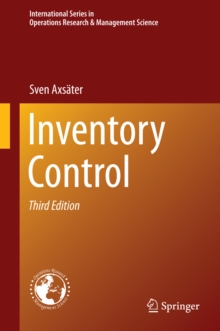
Fuzzy Logic in Management PDF
by Christer Carlsson, Mario Fedrizzi, Robert Fuller
Part of the International Series in Operations Research & Management Science series
Description
Fuzzy Logic in Management demonstrates that difficult problems and changes in the management environment can be more easily handled by bringing fuzzy logic into the practice of management. This explicit theme is developed through the book as follows: Chapter 1, "Management and Intelligent Support Technologies", is a short survey of management leadership and what can be gained from support technologies. Chapter 2, "Fuzzy Sets and Fuzzy Logic", provides a short introduction to fuzzy sets, fuzzy relations, the extension principle, fuzzy implications and linguistic variables. Chapter 3, "Group Decision Support Systems", deals with group decision making, and discusses methods for supporting the consensus reaching processes. Chapter 4, "Fuzzy Real Options for Strategic Planning", summarizes research where the fuzzy real options theory was implemented as a series of models. These models were thoroughly tested on a number of real life investments, and validated in 2001. Chapter 5, "Soft Computing Methods for Reducing the Bullwhip Effect", summarizes research work focused on the demand fluctuations in supply chains. The program enhanced existing theoretical frameworks with fuzzy logic modeling. Chapter 6, "Knowledge Management", outlines the collection, storing, transfer and management of knowledge using fuzzy logic. The principles are worked out in detail with software agents. Chapter 7, "Mobile Technology Application", introduces various applications including empirical facts and how mobile technology can be supported with software agents.
Implicitly the book develops themes that successful companies should use to (1) master effectiveness and quality in both the details and the whole, (2) build on and work with flexibility, and (3) support continuous learning in both the organizational and the individual level.
Information
-
Download - Immediately Available
- Format:PDF
- Publisher:Springer US
- Publication Date:06/12/2012
- Category:
- ISBN:9781441989772
Other Formats
- Hardback from £106.59
- Paperback / softback from £44.99
Information
-
Download - Immediately Available
- Format:PDF
- Publisher:Springer US
- Publication Date:06/12/2012
- Category:
- ISBN:9781441989772










